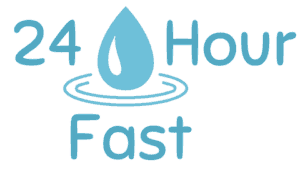You may have heard of intermittent fasting as it became more and more popular over the years. But have you ever come across dry fasting? This is a fast during which you abstain not only from food but also from water. As crazy as it may sound, it is a common fasting practice. But is intermittent dry fasting effective? Let’s dive into this and see whether it has any benefit.
Before going any further, please note that dry fasting can be dangerous if not done right. Read below to understand the risks and precautions to take before attempting any dry fast.

What is dry fasting?
Most of the fasts, whether it is intermittent fasting or prolonged fasts, usually require you to stay well hydrated. That is one of the most common recommendations. During those fasts, no food is ingested but water and non-caloric drinks are allowed, like tea or coffee.
However, with dry fasting, any water or liquid intake is cut off. It is a more restrictive method. Theoretically speaking, the lack of water may help accelerate some of the fasting benefits, such as metabolic health, fat-burning process, and inflammation decrease.
Millions of people practice dry fasting for religious reasons. For example, during Ramadan, Muslims refrain from eating or drinking anything from sunrise to sunset.
From that perspective, this is definitely not a new practice. Nonetheless, it gained some exposure and supporters of the method in the past few years for purported health benefits, outside of religious practice.
But before undertaking any new experiment, it is important to understand the facts, and whether this practice is proven to be effective or not.

Types of dry fasting
We have to distinguish two main types of dry fasting here: intermittent dry fasting and prolonged dry fasting. They are very different in their duration, frequency, benefits and risks.
Intermittent dry fasting
Similar to intermittent water fasting, also just called intermittent fasting, it is a daily fast, alternating period of fasting and period of eating.
It can be declined in different forms depending on the duration of the fast:
- 16:8 dry fasting: it involves fasting for 16 hours and eating and drinking during an 8-hour window. As we detailed earlier, the fast excludes any liquid intake. No water, no tea, no coffee, nothing basically.
- 20:4 dry fasting: it is similar to the 16:8 pattern, except that the fasting window is extended to 20 hours while the eating/drinking is restricted to 4 hours.
- 24-hour dry fast: it requires fasting for a full 24 hours. It can be practiced in different ways, either weekly or twice a week, or even every other day. In the case of a dry fast, alternate-day fasting can become quite extreme.
- Personalized dry fast: you can adapt your daily fasting window to the duration that suits you. The most common ones are cited above, but it is perfectly fine to adapt it to different durations, like 14:10 or 18:6 for example.

Prolonged dry fasting
Prolonged dry fasting involved much longer durations of fasting, over 24 hours. It is quite extreme and not recommended without the supervision of a medical practitioner.
Pushing your body too far can lead to severe dehydration as we will see later in the potential risks. Extended dry fasts definitely increase the risk level. Unless you are followed by a doctor, it is not recommended to undertake this by yourself.
Soft vs. hard dry fast
Another distinction you might come across is soft dry fast vs. hard dry fast. Soft dry fast is as we described above limiting your food and liquid intake by not drinking anything. However, you can use water in your daily life for showering, brushing your teeth, …
In a hard dry fast, all contact with water is excluded. This is an extreme approach and usually more of a spiritual exercise. We will focus on soft dry fasts here.

What are the potential benefits of intermittent dry fasting?
There are not many long-term dry fasting studies that would specifically prove the effectiveness of a prolonged dry fast. Not to say that there is no benefit, it is just not have been scientifically researched enough to be proven. However, there is a voluminous amount of research done on a form of intermittent dry fasting, through the Ramadan literature in particular.
Those research vary a lot in their design and what they focus on but are helpful to bring some potential benefits to light.
1. Weight loss
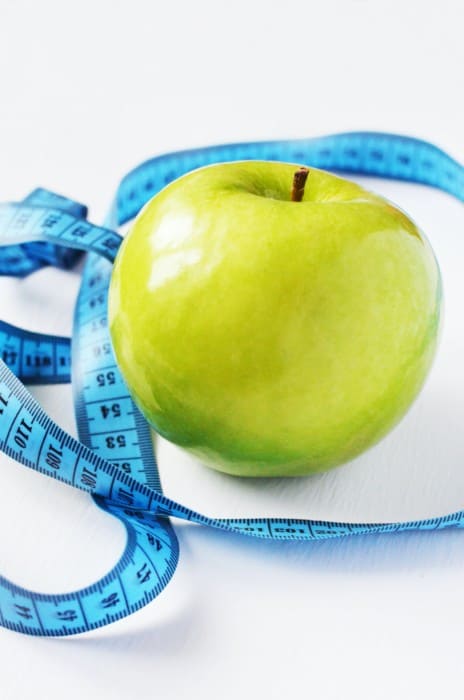
Is intermittent dry fasting effective for weight loss? According to this research on weight change before and after Ramadan on 202 subjects, it is, at least in the short-term. They observed a significant reduction in weight at the end of Ramadan, but the weight loss was small, -0.84 kg on average. They also showed that participants who fasted very consistently throughout the month lost slightly more weight, over 1 kg loss.
However, they also measured the participant’s weights one month after the end of the fasting period and all the lost weight was actually regained. It shows that intermittent dry fasting can be effective for short-term weight loss. But there is not enough evidence to prove that repeated intermittent dry fasting during a longer period would be effective for a long-term effect.
There is also no evidence proving it is more effective than a more standard intermittent water fasting. If weight loss is your main goal, it just suggests that consistency and sustainability in the long-term are important factors to consider.
2. Circadian cycle synchronisation

When practiced with a schedule that restricts feeding and drinking to daytime, it can be beneficial as it aligns with our natural circadian cycle. It is thought that aligning our feeding to a daily food intake results in improved energy metabolism and body weight regulation, alongside other factors.
Again, there is no scientific evidence that restricting water and liquid intake along with food is more effective than just restricting food. While both intermittent dry fasting and water fasting can be beneficial to align with our circadian rhythm, we don’t know yet the specific impact of water restriction.
3. Inflammation reduction
It is been shown that intermittent dry fasting has a positive impact on reducing the inflammation level in the body. This study conducted during Ramadan showed the suppression of proinflammatory cytokine expression during the third week of the fasting month. This may have a positive impact on the immune system as well.
4. Skin benefits

It is hypothesized that dry fasting can have a positive impact on skin health. This research showed that the calorie restriction induced by repeated fasting has the potential to accelerate the skin wound healing process.
Another research focused on the impact of intermittent dry fasting on psoriasis. It is a skin disorder and this research showed a significant decrease in the psoriasis severity index after the fasting month. However, it is worth noting that this study was conducted during Ramadan and the benefits observed might also be associated with the change in participants’ circadian rhythm.
5. Cholesterol level impact
Another study related to Ramadan fasting observed that the total cholesterol level significantly decreased at the end of the fasting month. Several other studies showed an increase in HDL cholesterol and a decrease in Triglycerides. Though LDL cholesterol (also known as ‘bad cholesterol) shows an inconsistent pattern with increased level, decreased level, or non-significant result depending on the research.
There is not enough evidence here that intermittent dry fasting would improve cholesterol levels overall. Especially that the ratio of total cholesterol to HDL and Triglycerides to HDL might be more predictive of disease risks than each level independently. The previous studies don’t specifically analyze those ratios. Whether intermittent dry fasting does have a positive impact on cholesterol ratios is still to be proven and we can’t draw any conclusion at this point.
6. Brain health optimization
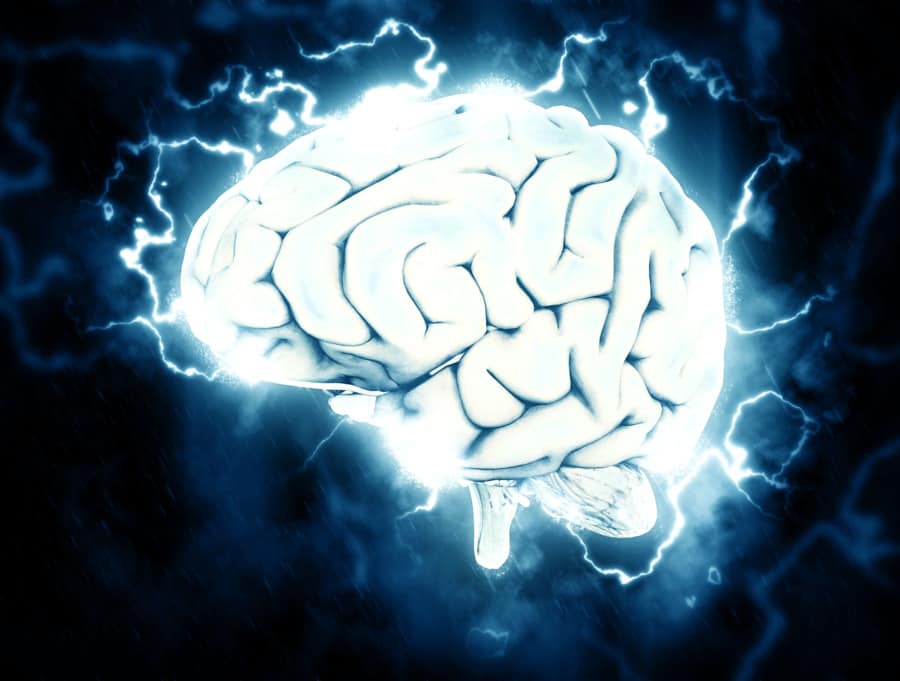
This study observed that intermittent dry fasting (through Ramadan month) increased significantly the levels of serotonin, brain-derived neurotrophic factor, and nerve growth factor. Those play an essential role in the survival and functions of neurons.
There is not enough research to generalize this to every type of dry fasting as the study has a very specific group of participants. However, this suggests that it could have positive benefits on the brain.
7. Psychological benefits

This research studied the impact of Ramadan fasting on emotional intelligence. It is interesting to see that the emotional score evaluated in the survey increased by the end of the fasting month. Several emotional aspects also showed an increase, like responsibility and empathy. It is important to note though, that one month after the end of fasting, most indicators were back to their base levels. This highlights the short-term effect that stops after fasting ends.
In addition, as we previously saw, serotonin showed a significant increase as well. This is a neurotransmitter related to happiness and well-being. Its increased level can have positive benefits in that sense.
Overall, we can hypothesize that intermittent dry fasting may have a positive impact on emotional intelligence. But again, the research is not exhaustive enough to draw definitive conclusions from it.
Is it more effective than intermittent water fasting?
As we just saw, intermittent dry fasting has several purported benefits. Some of them being suggested by research. But as we mentioned earlier, the studies are looking at very specific groups of participants. They don’t compare the results to a control group with a randomized control trial.
So while there are a lot of hypotheses and potential benefits that can be suggested from this literature, there is very little research precisely done to prove the benefits of dry fasting.
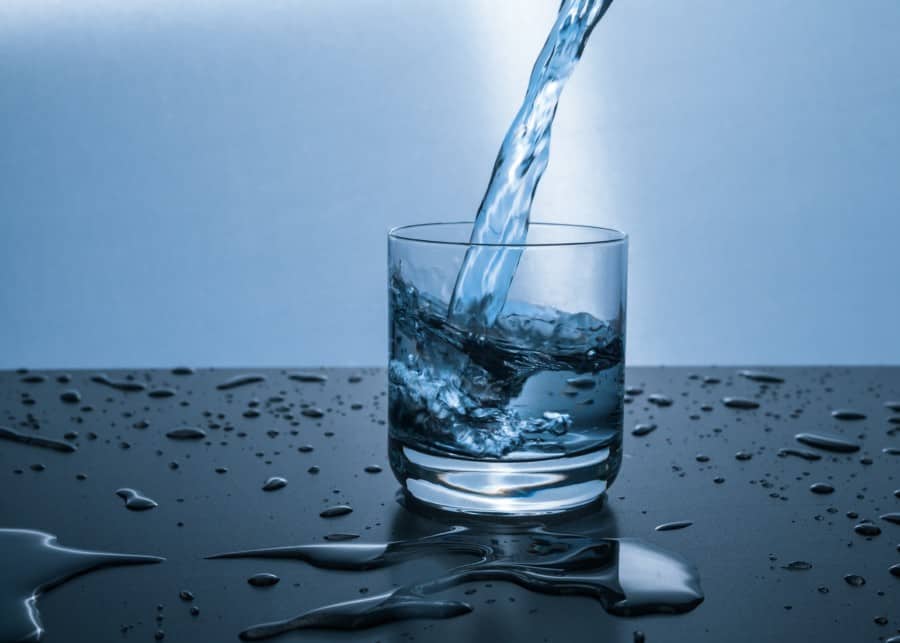
It is especially true when it comes to comparing dry fasting to water fasting. Is one of them more effective than the other? At this point, we cannot answer this question with a definite answer.
While it is thought that no water intake will lead your body to produce its own water through fat burning, it is yet to be scientifically proven. Would you experience similar benefits by going through intermittent water fasting? From a logical standpoint, most likely. But is the rate at how fast you obtain those results is the same? Maybe not. Maybe. This will require targeted comparative research of the two types of fasts to draw conclusions.
What should you do then? Experimenting is the best option if you want to see what works best for you. But be aware of the risks and complications that a dry fast encompasses. That is what we are going to see now.
Risks and complications
There is not enough research proving that dry fasting is more effective than water fasting. For that reason, we don’t necessarily recommend undertaking a dry fast on a regular basis. Outside of any other spiritual belief or religion, obviously.
But if you want to experiment, be aware of the following risks and complications. We recommend consulting with your medical practitioner first to make sure you are cleared to try.
Also, we focus on intermittent fast here, but no prolonged dry fast should be undertaken without medical supervision.
Risks

As with any type of fasting, you should pay attention to your body signals. It is possible to experience some discomfort and side effects as stated below:
- Tiredness: If your body is not yet fully adapted to fasting, you might feel more tired than usual. This usually improves after a few weeks of consistent intermittent fasting.
- Headaches: This can also happen if your body is not yet adapted to the fat-burning process. The lack of water can particularly accentuate this side-effect.
- Hunger: This is a normal feeling when fasting, especially if not used to it. It usually comes in waves at the times of usual eating and goes away after a while.
- Irritability: alongside hunger, mood can be impacted a bit.
- Concentration issue: the combined effect of hunger and tiredness can lead to poor focus. Taking short breaks from work or study can help.
The above should be small discomforts and not significantly increase throughout the fast. However, listen to your body carefully. If any of the above symptoms become too strong or you suspect some complications detailed below, stop your fast.
Complications
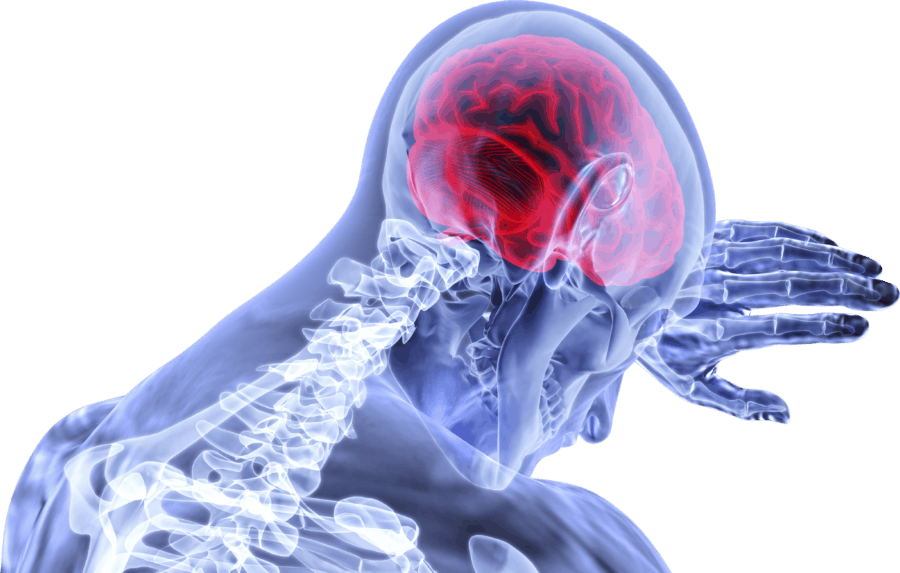
- Dehydration: dry fasting can lead to dehydration, resulting in electrolyte imbalance and low blood pressure. Severe dehydration can cause excessive thirst, rapid heart rate, sunken eyes, rapid breathing, dark urine. Dehydration can be a serious issue and life-threatening. This is a medical emergency and if you experience any of those symptoms, you should seek medical help immediately.
- Fainting: dehydration associated with hypoglycemia can increase the risk of fainting.
- Urinary and kidney issues: related to dehydration, kidney stones can develop as well as urinary tract infections.
- Nutrient deficiency: along with repeated fasting, without a healthy, and nutrient-rich diet, it can lead to vitamin and mineral deficiencies.
As we eluded earlier, dry fasting, intermittent or prolonged, is riskier than water fasting. The possible side-effects and complications should be well-known in order to monitor your status continuously. Stop your fast if needed and don’t push your body too far. It’s always possible to restart your fast at a later date.
How to best prepare for intermittent dry fasting?
We don’t necessarily recommend dry fasting if no spiritual aspect is involved. There is indeed not enough research to prove that it is more effective than water fasting.

However, if you want to experiment it anyway, make sure you follow the below guidelines before starting:
- Start slow and prepare your body in advance: Increase your hydration in the days leading up to your dry fast. Make sure to eat a balanced diet, rich in healthy fats.
- Make you have enough calorie and water intake overall: Prepare the hydration and meals that you will take during your eating/drinking window.
- Start with intermittent water fast first: It is a good idea to train your body to fast first without any food, but allowing liquid intake like water, coffee or tea. And then when adapted to that type of fast, only then you can try a dry fast.
- If any doubt on your current health status, consult your doctor first to confirm you can undertake a dry fast.
That said, they are specific populations who SHOULD NOT try dry fasting as it can be extremely dangerous:
- Pregnant women or breastfeeding
- If you are taking any medications
- People exposed to significant heat
- If you are trying intermittent fasting for the first time
- People trying prolonged dry fast without medical supervision
When it is time to break your fast, you also need to do it safely. Not binging on a lot of food right away. To know what to eat to break a fast and how to do it safely, check this article.

Conclusion
In summary, while diverse research shows the potential benefits of intermittent dry fasting, there is not enough scientific evidence at this point. Those findings cannot be generalized. And there is no evidence proving that it would be more effective than intermittent water fasting. Intermittent water fasting can already provide multiple benefits and those have been studied more intensively.
Aside from spiritual belief, whether you want to undertake an intermittent dry fast for your own experiment and findings is up to you. Be aware of the risks and complications, listen to your body, and seek medical advice first. Do not attend an extended dry fast without medical supervision.
The information we provide at 24hourfast.com is not intended to replace a consultation with a qualified medical professional. By interacting with this site, you agree to our disclaimer.
